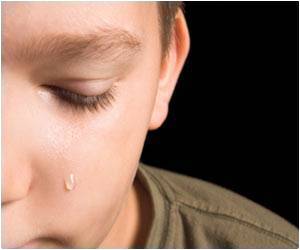Off-road vehicles (ORVs) have been designed to operate in rugged, unpaved terrain, and people who use ORVs in many regions of the country may face exposure to hazardous mineral fibers.

‘A report conducted between 2005 and 2007 estimated that 44 million Americans above the age of 15 had engaged in activities involving ORVs within the past year.’





Most of the deposits are located along the Appalachian Mountains and ranges in the West and Southwest, especially California."ORVs have been designed to operate in rugged, unpaved terrain, and they can produce copious amounts of dust," says Chris Wolfe, MS, an epidemiologist at Cincinnati Children's Hospital Medical Center and lead author of the study.
"During off-roading in these areas, asbestos and other mineral fibers can become airborne as a component of the dust generated by ORVs. This puts riders - particularly children at risk of inhalation exposure, but the dust can also be blown to other areas and may pose a risk to others. We found that a substantial amount of ORV trails are located within 20 miles of a naturally occurring asbestos deposit."
The study, which examines the potential for airborne fiber exposures associated with ORVs, reviews 15 previous studies on the subject and examines the spatial relationship between ORV trails and known deposits of these fibers.
The study is published online in the International Journal of Hygiene and Environmental Health.
Advertisement
The US House of Representatives recently passed a bill to reopen the site for ORV use. The bill is currently awaiting approval in the Senate.
Advertisement
A report conducted between 2005 and 2007 estimated that 44 million Americans above the age of 15 had engaged in activities involving ORVs within the past year. The prevalence of ORV use among children and young adolescents is unknown.
It is also unknown how many of these ORV users have experienced negative health outcomes, but Wolfe and his colleagues call for studies to determine the prevalence of asbestos-related disease among those who frequently engage in ORV use where mineral fibers naturally occur.
In the meantime, Wolfe recommends avoiding these areas, especially when the environment is dry. If people do use ORVs, he recommends they take precautions, such as wearing a safety mask and goggles, although this will not eliminate the risk of exposure.
The American Academy of Pediatrics recommends legislation in all states prohibiting the use of 2- and 4-wheeled off-road vehicles by children younger than 16, as well as a ban on the sale of new and used 3-wheeled ATVs, with a recall of all used 3-wheeled ATVs.
Source-Eurekalert














